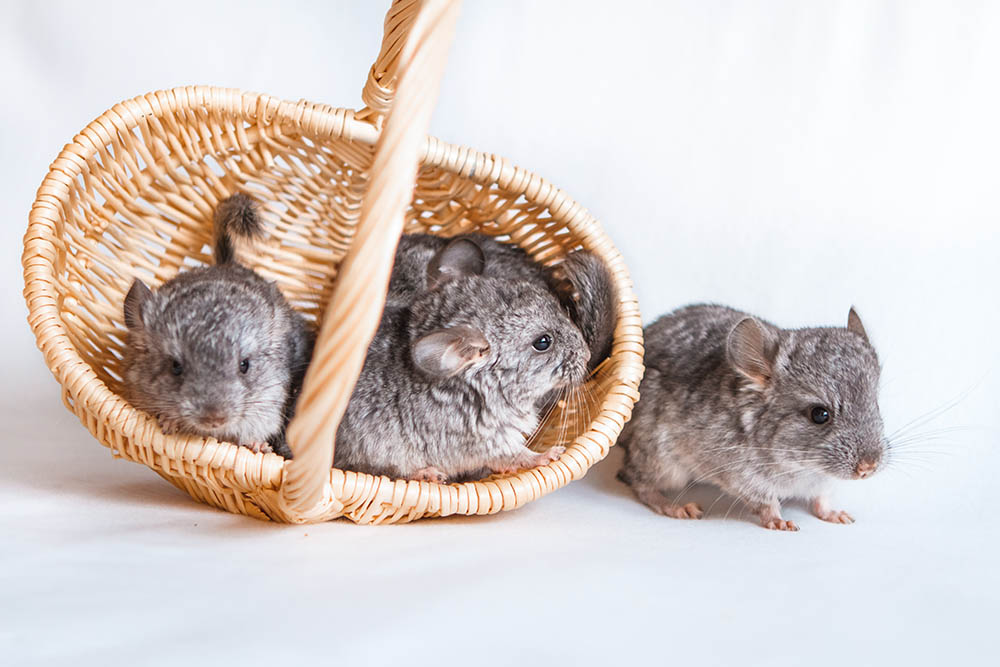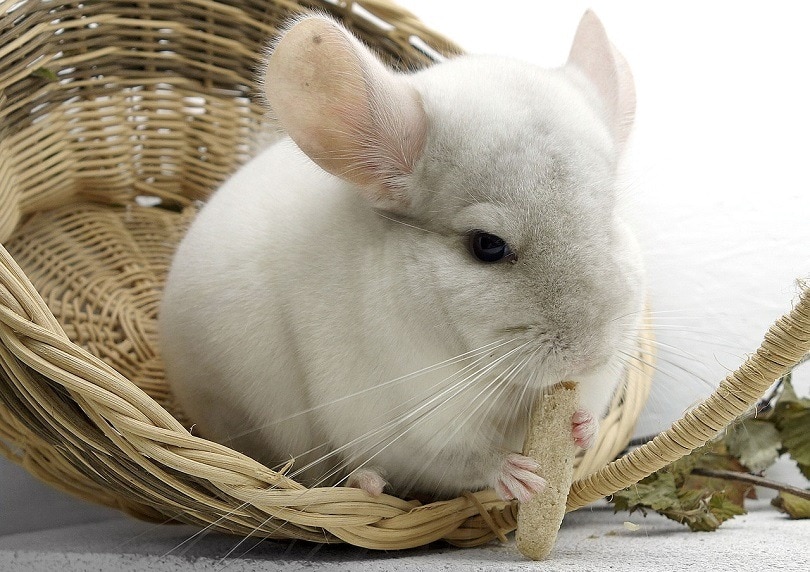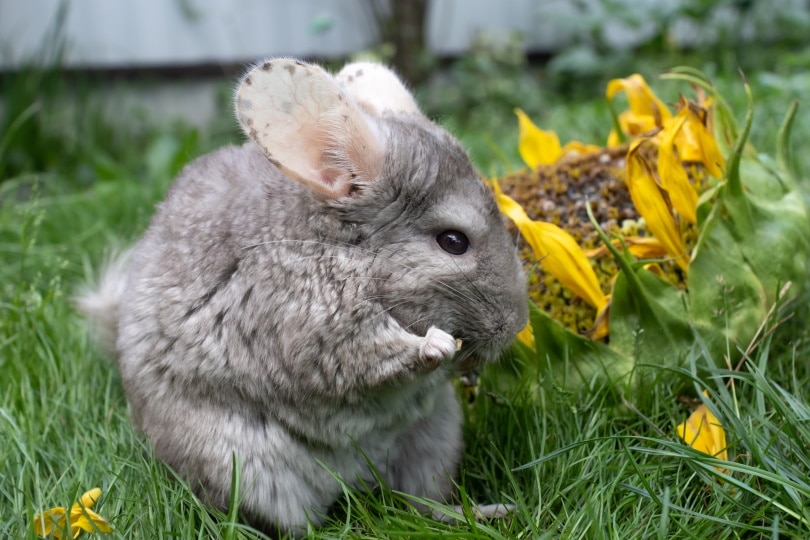
Degus are in the same family as Guinea Pigs and Chinchillas, and these small, burrowing rodents have become popular pets in the United States. They are native to Chile and are social animals that tend to live in large communities, sometimes numbering upward of 100! They make great little pets because they are awake during the day (diurnal), making them easier to interact with. They closely resemble a mouse or squirrel but have larger ears, a tufted tail, and a round, squat body.
If you are interested in getting a Degu as a pet, this list has 10 important things to know before bringing one home.
Top 10 Things to Know About Degus
1. They are diurnal
Unlike their Chinchilla cousins, Degus are diurnal, meaning they are awake during the day and sleep during the night. Guinea Pigs are also largely diurnal but tend to take frequent naps throughout the day and are awake for short periods at night too. In the wild, Degus are more likely to be crepuscular, meaning they are most active during dusk and dawn. They are adaptable animals, though, and in captivity, they can easily adapt to both nocturnal and diurnal lifestyles.
Degus are social creatures and are known to live in groups of 10 or 15 animals, and these groups then often form into colonies, numbering 100 or more in some cases. They live in communal burrows, and this social behavior is critical to their survival in the wild. While they are adaptable animals in captivity, it is still highly recommended to keep them in pairs or groups. In captivity, they are exceedingly socially tolerant and take well to new members joining their group.

- You may also be interested in: Chinchilla vs. Degu: Which Pet Is Best for You? (With Pictures)
3. They need loads of exercise
Degus are active and curious animals that love to play and explore their surroundings and need loads of exercise. They do not need any specific exercise from their owners, though, as long as they have companions to interact with. Toys like balls and multi-level running tracks are great, and since these animals love to burrow, it’s highly recommended to give them a digging box filled with soil to keep them busy.
4. They have a long lifespan
Degus can live for 6–7 years in captivity and even longer in some cases. Compared to other rodent pets, like mice and rats that only live for 2–3 years, these animals have a fairly long lifespan. This is an important factor to think about before bringing one home, as they are a responsibility that will be around for quite a while.
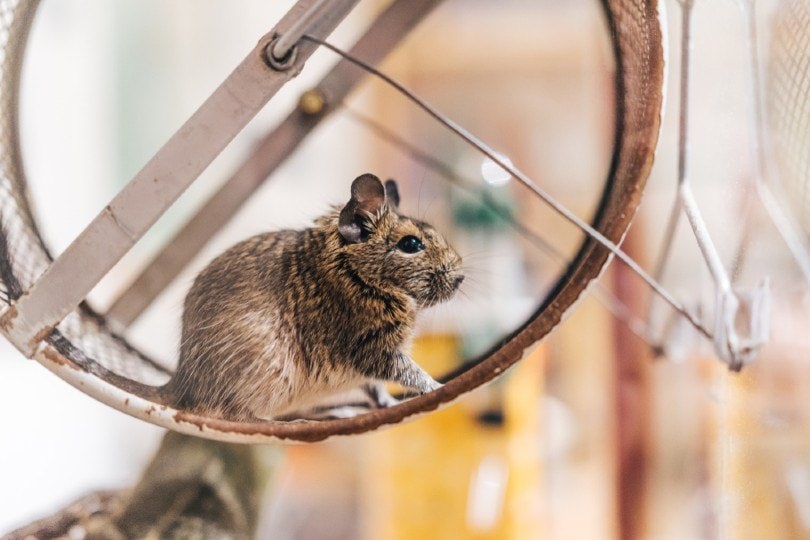
5. They are clean
Degus love to clean, groom, and bathe themselves, and as such, they are very clean animals, provided that their cage is well equipped. They love to roll in the dust, so you should provide them with a ceramic bowl of dust to play in. Like most rodents, Degus love to chew, and commercially produced wood chewing blocks will keep this urge satisfied.
6. They have sensitive tails
Degus are easy to tame once they get used to their human owners and are happy to be handled, but they should never be picked up by their tails. The skin and hair tuft at the end of their tails are highly sensitive and can easily come off. This is an adaptation from the wild to help them escape from predators, and if this happens, their tails can quickly become infected. It is far safer to pick them up with two hands, one behind their front legs.
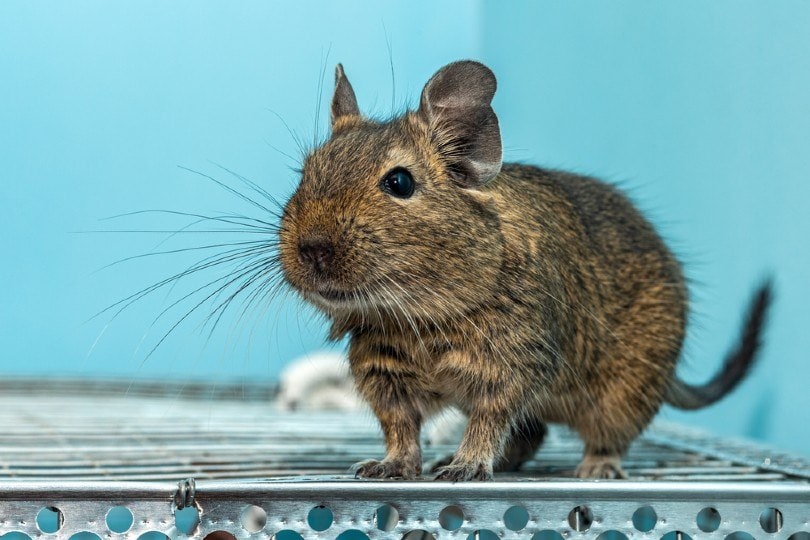
7. They need a particular diet
Degus are strict herbivores and in the wild, feed on small leaves and shrubs, so they need a diet high in fiber. This makes their digestive tracts highly intolerant to sugar, and they have been known to quickly develop diabetes. In fact, these animals have been used widely in laboratories as research models to try and understand diabetes in humans. Commercially made rodent pellets (sugar-free ones!) are ideal and should be supplemented with leafy greens like lettuce, and they should have an unlimited supply of hay in their enclosure at all times.
8. They form close bonds with their owners
Since Degus are social animals, they are known to form strong bonds with their owners. They will recognize other Degus and their human owners by both sight and smell and are known to stand up on their hind legs, indicating that they want to come out of the cage and say hi!

9. They are highly territorial
While Degus are social animals, especially in the wild, they can be highly territorial when housed with other Degus of the same sex. Males housed with other males, especially when there is a female in sight, are likely to fight and become aggressive. Also, Degus are prolific breeders, so unless you want babies, males and females should be housed separately.
10. They need a large amount of space
Degus love to burrow and ideally needs a digging box filled with soil to keep them busy. Additionally, Degus need a large cage—the larger, the better—especially when housing multiple animals together. Since Degus are prolific chewers, metal cages with solid floors are best, and cages with multiple levels will keep them active and entertained. Degus will love daily time outside their cages too, though they are fast-moving and should be carefully monitored during these times.

Conclusion
Degus are relatively new to the pet scene, which is why it’s vital to know as much about them as you can before adopting one. Along with making sure your Degu has a properly sized and outfitted enclosure, high-quality food, and others to interact with, you need to take your pet(s) to an exotic veterinarian on a regular basis to ensure their good health.
Featured Image Credit: Tom Meaker, Shutterstock



